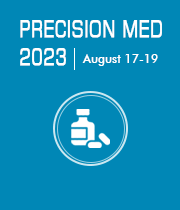Pharmacogenomics: Convergence of Pharmacology & Genomics
Pharmacogenomics is the study of a person's genetic structure, or genome, to determine which treatments and drug doses are most likely to work for that individual. This emerging field blends pharmacology, the science of how medications operate, with genomics, the science of the human genome. Precision medicine attempts to personalize health care in every manner possible, with choices and treatments suited to each individual. Precision medicine includes pharmacogenomics. Pharmacogenetics and pharmacogenomics are terms that can be interchanged. Pharmacogenomics, on the other hand, refers to the entire set of genes involved in determining therapeutic efficacy and safety, whereas pharmacogenetics refers to monogenetic variations that modify drug response. In terms of advances in human genomic science, pharmacogenetics is suggested as a key clinically proven application.
- Drug Development
- Clinical Trials
- Pharmacodynamics
- Pharmacokinetics
- Drug Safety
- Pharmacoproteomic
- Pharmacotranscriptomics
- Pharmacometabolomic

Bernd Blobel
University of Regensburg, Germany
Roy Gary Beran
University of New South Wales, Australia
Matthias Schwab
University of Tubingen, Germany
Thomas Webster
Interstellar Therapeutics, United States
Boris Tankhilevich
Magtera, Inc., United States
Isabella Friis Jorgensen
University of Copenhagen, Denmark


Title : The use of anti seizure medication therapeutic blood level determination to personalise the treatment of epileptic seizures especially in patients attending the accident and emergency department
Roy Gary Beran, University of New South Wales, Australia
Title : Personalized and precision medicine (PPM) can be established as a unique healthcare model through biodesign-driven and inspired biotech, translational applications. This approach aims to ensure human healthcare, wellness, and biosafety.
Sergey Suchkov, Institute for Biotech & Global Health of RosBioTech and A.I. Evdokimov MGMSU, Russian Federation
Title : Monitoring folds localization in ultra-thin transition metal dichalcogenides using optical harmonic generation
Ahmed Raza Khan, Australian National University, Australia
Title : A systematic review of regulatory approaches for Direct- To- Consumers (DTC) genetic testing
Kavitha Palaniappan, Duke-NUS Medical School, Singapore
Title : Regulatory framework of in vitro diagnostic and artificial intelligence for precision medicine
Pei Ting Sarah Chou, Regulatory Affairs Professionals Society, Taiwan
Title : Unraveling cancer stem cell signatures in circulating tumor cells of metastatic colorectal cancer: Investigating ALDH1A1 and the repurposing potential of disulfiram via scRNA-seq
Nurul Syakima Ab Mutalib, Universiti Kebangsaan Malaysia, Malaysia